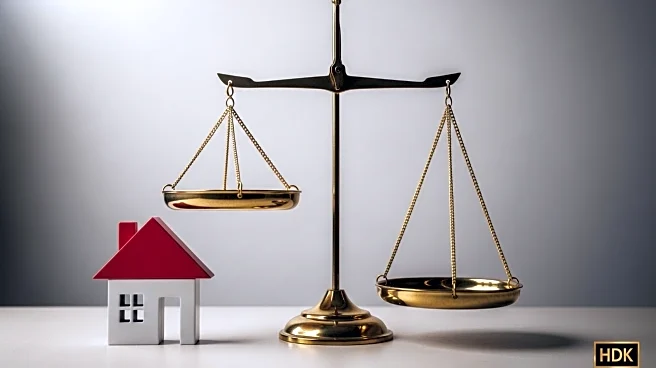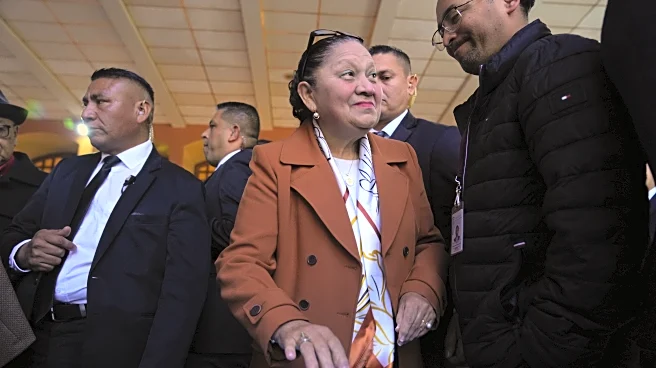What is the story about?
What's Happening?
An Arkansas jury recently ruled in favor of Rose Chadwick, a plaintiff who challenged State Farm's calculation of insurance payouts for totaled vehicles. Chadwick argued that the company's use of a computer program to estimate replacement costs systematically undervalued her 2011 Hyundai, resulting in a payout that was $600 less than the car's worth. The jury's decision affects 37,000 other plaintiffs who claim similar underpayments. State Farm contends that the program used was standard among insurers and has since been discontinued. The company maintains that it seeks to pay what is owed within policy terms and offers customers options for third-party appraisals.
Why It's Important?
The ruling has significant implications for the insurance industry, potentially affecting how companies calculate payouts for totaled vehicles. It highlights the tension between technological tools used for valuation and consumer perceptions of fairness. The case could lead to changes in industry practices, as similar lawsuits are being filed in 19 states. Insurance companies may face increased scrutiny from regulators, who are considering whether valuation methods need to be revised. This could impact the financial operations of insurers and the compensation received by policyholders nationwide.
What's Next?
State Farm is contesting similar lawsuits in multiple states, arguing against the class action approach used in Arkansas. The company is likely to continue defending its practices in court, while plaintiffs push for broader changes in how insurance payouts are calculated. Regulators in various states may decide to intervene, potentially mandating changes in valuation methods. The outcome of these cases could set precedents for future insurance disputes and influence policyholder rights.
Beyond the Headlines
The case underscores the ethical considerations in using technology for financial assessments. It raises questions about transparency and fairness in automated systems, which are increasingly prevalent in various industries. The dispute also reflects broader societal concerns about consumer rights and corporate accountability, potentially prompting legislative or regulatory action to ensure equitable treatment of policyholders.













![Cortisol vs. Melatonin: The Biological War Happening Inside Every Night-Shift Worker]](https://glance-mob.glance-cdn.com/public/cardpress/binge-magazine-card-generation/spaces/US/en/discover-daily/images/ppid_7byehtbd-image-177082393426031154.webp)



